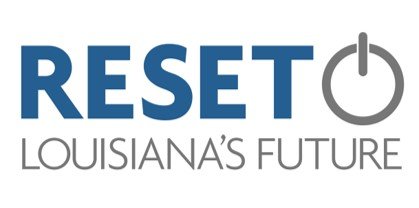BATON ROUGE, La. (AP) — Louisiana’s top higher education board adopted a new roadmap for the state’s public colleges and universities on Wednesday, seeking to boost educational attainment for black students and get more adults back into the classroom to learn new skills.
The master plan approved unanimously by the Board of Regents strives for a high achievement goal, for six in 10 working-age adults to hold a college degree or other employment credential beyond a high school diploma by 2030. Fewer than half of Louisiana’s adults aged 25 to 64 currently have achieved that benchmark.
A year of work went into rewriting the statewide plan governing public higher education, the first wholesale revamp since the master plan was developed nearly 20 years ago.
“This is so critically important to the future of our state and to the future of our families,” said Gov. John Bel Edwards, who attended the meeting to praise the updated master plan.
The new version doesn’t tally up the costs of its recommendations, such as expanding the number of dual-enrollment, college credit courses available to high school students, expanding financial aid opportunities and increasing work-based learning programs that widen skills training availability.
The Regents will need to sell those suggestions to lawmakers.
But that wasn’t the focus of Wednesday’s adoption of the new master plan, where the Democratic governor and leaders of the four public college systems applauded the setting of new priorities and achievement targets.
“We know the hard work happens after we approve this plan,” said Commissioner of Higher Education Kim Hunter Reed. “But we are ready.”
Louisiana adopted its first statewide higher education master plan in 2001, creating statewide college admissions standards and including a funding formula to divvy up dollars from the state. A state law required an updated document by Sept. 1.
The admissions standards remain intact in the new version. The priorities of the funding formula have shifted slightly, to reward schools that meet the priorities of the plan, such as completion of a degree or other employment credential by low-income students, minority students and adults who are 25 and older.
But more broadly, the plan charts a vision that the state and its higher education campuses should be working to achieve. The document estimates that if Louisiana reached the 2030 goal, it would see a $1.9 billion increase in tax collections, while also saving money on the Medicaid program and corrections system.
The plan looks for ways to eliminate equity gaps between white and minority students and help adults who long ago left school to get a skills-based credential or other educational training. It says Louisiana must find ways to advance educational attainment for nontraditional students, youth in foster care and inmates who will eventually leave prison and need to find work.
An estimated 56% of jobs will require education beyond a high school diploma in 2020, but only 44% of Louisiana adults aged 25 to 64 have a skills-based certificate or college degree, according to Regents data.
To reach the 2030 goal will require producing 45,000 more credentials annually in 11 years — whether a skills certificate, associate degree or university degree — than students received in 2018. That would more than double the 40,000 credentials produced in 2018. Significant growth will be needed in the credentials obtained by African-American residents.
The Board of Regents intends to publish annual reports about how efforts to reach the 2030 goals are progressing.
___
Follow Melinda Deslatte on Twitter at http://twitter.com/melindadeslatte
